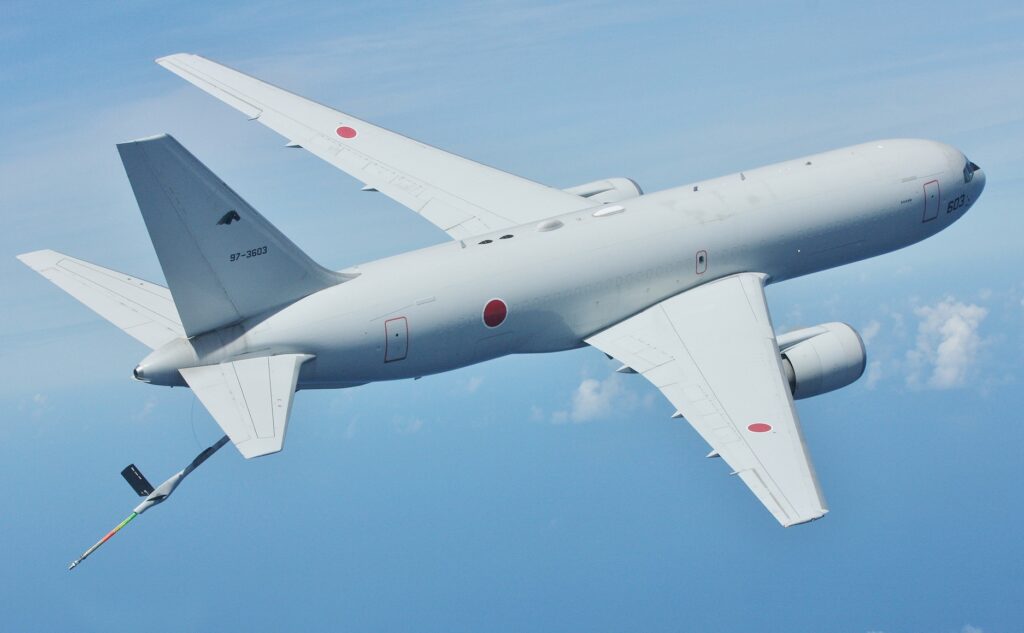Aerospace Aerospace news Air Force News Airplane News Asia News Aviation news Boeing news Business News Defense News Economic News Economy News Finance News Global Politics International News Japan News Military Military News News Pacifica stock stock news transport Transportation News
Boeing Wins Contract for Two More KC-46 Tankers for Japan
The U.S. Air Force has exercised the option for the Japan Air Self-Defense Force’s (JASDF) third and fourth Boeing [NYSE: BA] KC-46 tanker through the Foreign Military Sale (FMS) process. “Japan’s new tankers will play…
